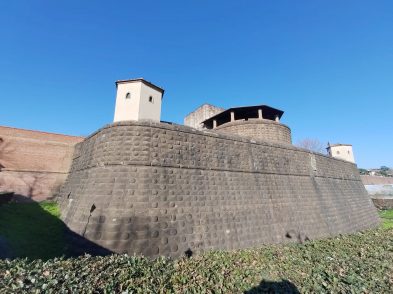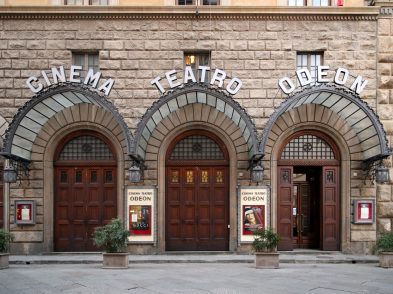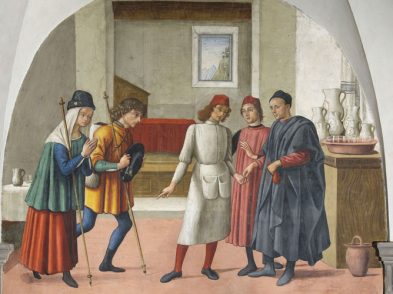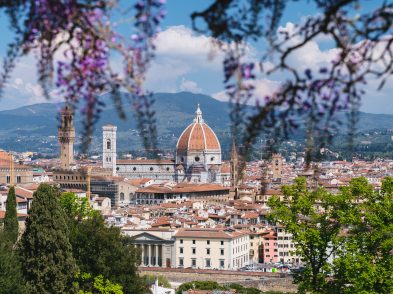The decade between 1945 and 1955 is described as the
golden age of Italian cinema. Emerging from the stark and often desolate picture
of post-World War II Italy depicted in the neorealist films, the commedia
all’italiana or Italian-style comedy was born. The film producer and
distributor who helped to popularise this genre worldwide was Mario Cecchi
Gori.
Born in Brescia on March 21, 1920, Cecchi Gori set up his film production company
in 1949. During his long, prolific and commercially successful career, he
produced more than 200 films, ranging from B-grade movies to cult films such as
Dino Risi’s The Easy Life, starring Vittorio Gassman and Jean-Louis
Tritignant; critically-acclaimed pictures like Federico Fellini’s The Voice
of the Moon, starring Paolo Villaggio and Roberto Benigni; and box-office
hits like Johnny Toothpick, starring Roberto Benigni.
In 1991, he was given the David di Donatello, the most important Italian
film award, for his career. His prestige grew when, in 1992, Mediterraneo,
a film about Italian soldiers stranded on the Greek island of Egeo during World War II, directed
by Gabriele Salvatores, won the Academy Award for Best Foreign Film. In 1994,
he received the Best Film Award at the European Film Awards for L’america,
directed by Gianni Amelio. Two years later, Cecchi Gori, along
with his only son Vittorio (who was born in Florence in 1942), Gaetano Daniele
and director Michael Radford, was posthumously nominated for The Postman.
It was the first Italian film to be an Academy Award nominee for Best Film.
Known in Florence simply as Marione, Mario was hailed as a
saviour by the Fiorentina soccer club’s fans when, in 1990, he acquired the
club from the Pontello family, who had been bitterly criticised for selling
Roberto Baggio to Juventus. He remained the club’s president until his death.
When, on November 5, 1993, Cecchi Gori died of a heart attack in Rome, all of Florence turned out for his funeral, held in the Basilica
of Santa Croce. Commemorating his passing, Columbia-Tristar, the mega American
film and television production company, took out a full-page in Variety,
the entertainment industry magazine, which simply read ‘Mario Cecchi Gori-In
memorium.’
Subsequently, Vittorio Cecchi Gori took over
management of both their production group and the Fiorentina. Despite further
successes as a producer, notably for Roberto Benigni’s Life Is Beautiful,
which won three Oscars, including Best Film in 1999, it has been difficult for
Vittorio to fill his father’s shoes. Without the legendary, almost daily
battles over business, in which the elder Cecchi Gori’s innate common sense
usually prevailed, Vittorio Cecchi Gori has been involved in a series of
financial and other scandals.
In a risky
move in 1995, he acquired Videomusic, Telemontecarlo and shares in Telepiú,
hoping to break the television duopoly of the Rai and Fininvest. In 2000, it
failed badly, one of the major causes of the financial downfall of the Cecchi
Gori Group. A settlement of over 2000 billion lire on his separation from his
wife Rita Rusic the same year did not help. To compound his woes, a senator in
1994 and 1996, he sought re-election in 2001. Although not elected, several
months later, he came under investigation for attempting to buy votes.
At the Fiorentina, not only did his management eventually lead to the
team’s relegation to the Serie B at the end of the 2001-2002 season, but also,
in June 2002, to its bankruptcy, making him, at the time, one of the most
reviled men in Florence. In November 2005, he was
sentenced to three years imprisonment for his role in the team’s financial
situation; pardoned, he did not go to jail.
In 2006, the
younger Cecchi Gori was once again involved in charges of fraudulent bankruptcy
regarding Finmavi, the financial holding company of the Group, which at its
peak included more than 40 companies operating in film production, distribution,
exhibition, television, multimedia and soccer.
For the
third time, on June 3, 2008, Vittorio Cecchi Gori was once again arrested for
fraudulent bankruptcy, this time of Safin, a company that controlled numerous
movie houses throughout Italy. From his prison cell, he told the press, ‘there
has been a misunderstanding, and it will be cleared up.’ We can only hope so,
for the sake of his father’s name.








